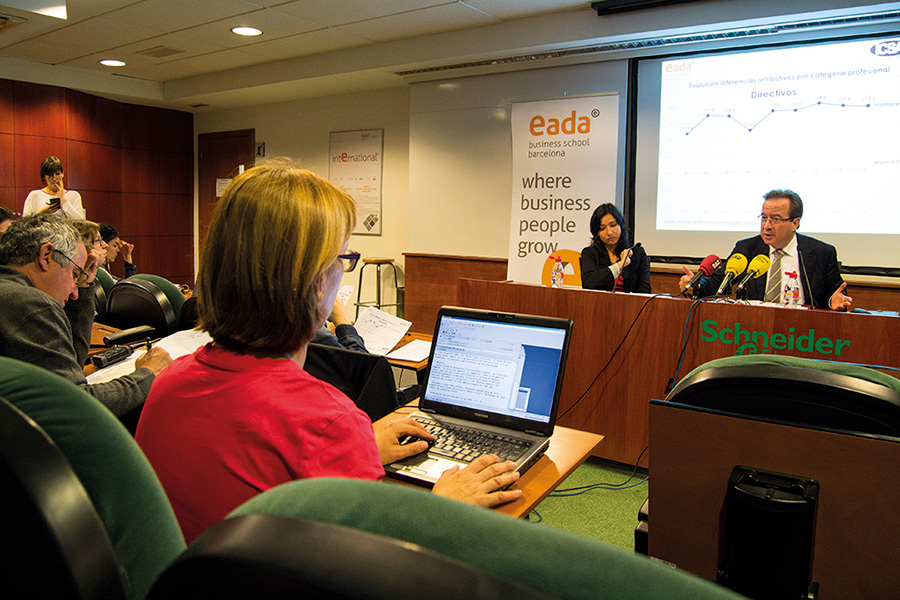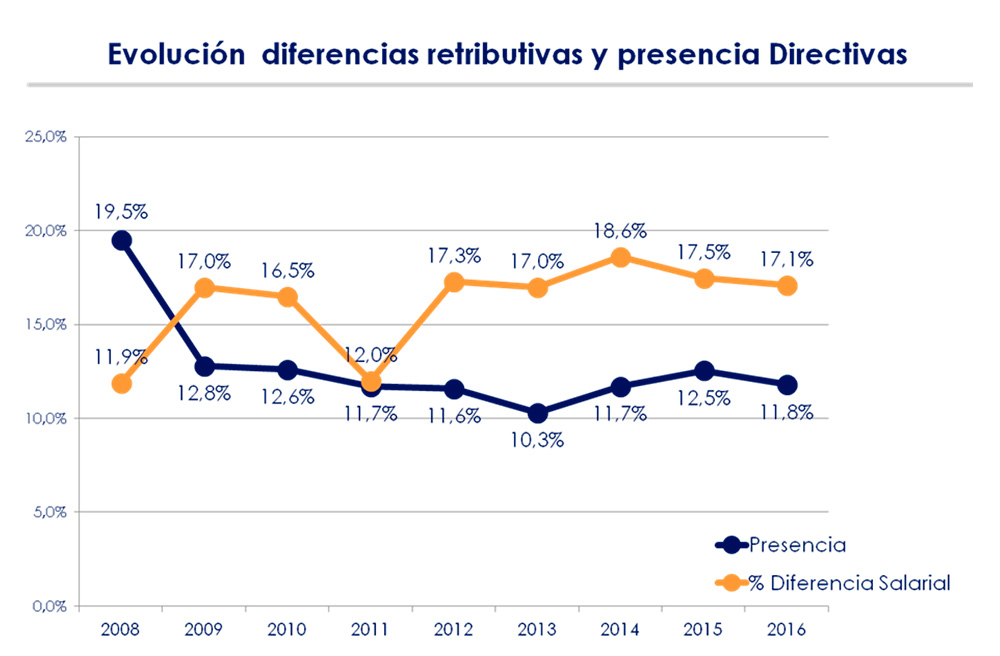Women earn less and are under-represented in management positions
EADA and ICSA Grupo present the report ‘Salary differences and women’s presence rate’

Economic experts expected that the slow economic recovery that began last year would lead to greater salary equality between men and women. In fact the salary gap between men and women has widened in 2016, which shows that this is not a temporary but a structural problem. This is the main conclusion of the Salary differences and women’s presence rate report presented by the Human Resources consultancy ICSA Grupo and EADA, based on a simple that gathers salary data for over 80,000 employees in Spain
Differences in managerial positions
The most evident piece of data was found in the managerial positions range: whereas the average annual salary of women managers is 68,126 euros gross, that of their male counterparts is 79,775 euros, in other words, 17% higher. What’s more, women hold only 11.8% of all management positions in Spain –men hold the remaining 88.2%–, retreating from the 12.5% figure of 2015 and further away from the 20% figure in 2008, the maximum registered rate.
“These findings show that men continue to dominate in managerial positions and that the salary gap has become chronic since the beginning of the crisis in 2008”, points out Ernest Poveda, president of ICSA Grupo and director of the report. And the most shocking thing of all he goes on to add is that “not only do women have more support at the level of academic training but that in the areas where there are more women managers there is less salary discrimination”.
These differences get smaller at lower professional levels. Thus, in middle management men earn 13.8% a year more than women do –39,366 euros as opposed to 34,592 euros–. What’s more at the “employee” level men earn 11.5% more –23,887 euros and 21.423 euros respectively–.

A lack of reconciliation and flexibility
According to PhD. Aline Masuda, an EADA professor and collaborator on the report “this situation is due to excessive control and rigidity in Spanish companies since the beginning of the crisis as well as to the total availability they demand of their workers”. In this environment she points out, “women stand to lose out, because there is no room for conciliation and flexibility”. In her opinion, “stereotypes still carry a lot of weight in Spain where managerial positions are still associated with men and looking after the children and household chores are for mothers”. In contrast, Ms Masuda thinks that “perpetuating these old fashioned stereotypes makes less and less sense because the most successful companies base their work philosophy on aspects such as flexibility and creativity, and shy away from rigidity and control”.
Is there any hope that this trend will change? According to Mr Poveda, yes there is, “especially in more technological and innovation sectors, more focused on objectives and conciliation policies”.
